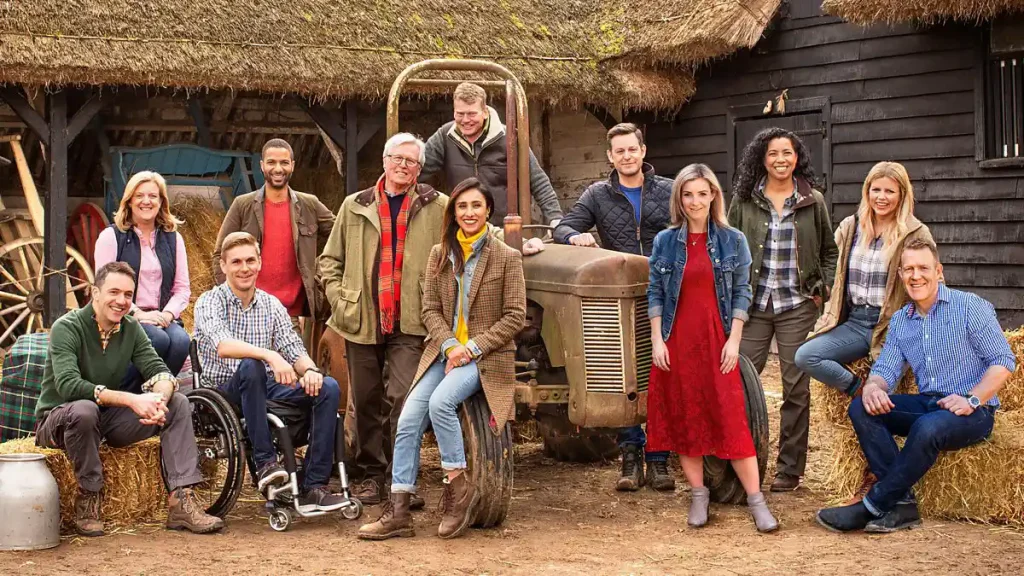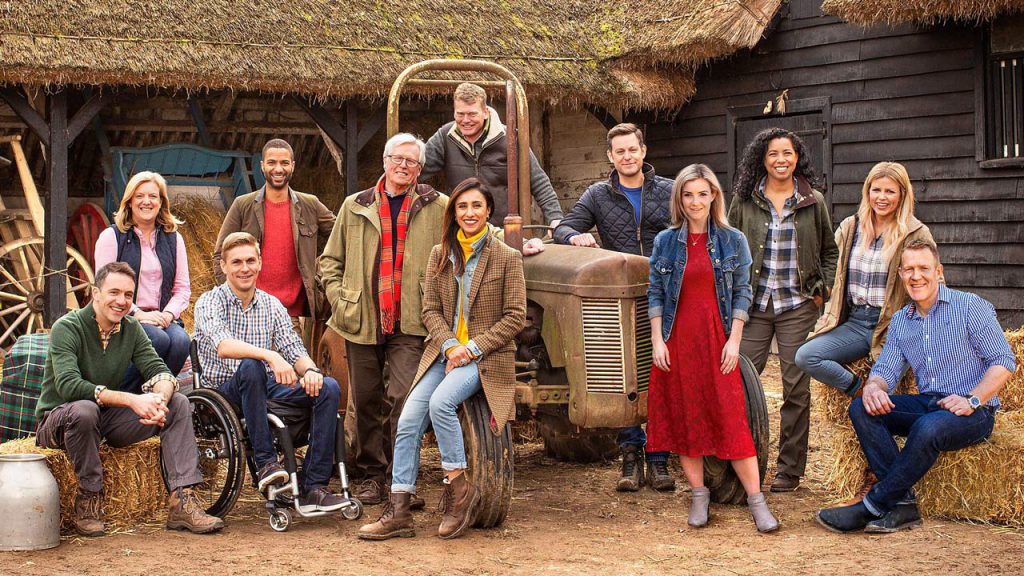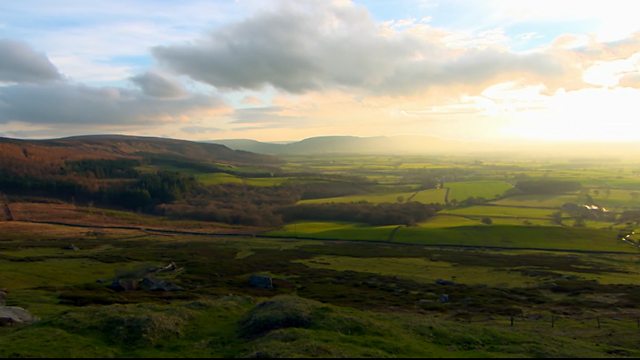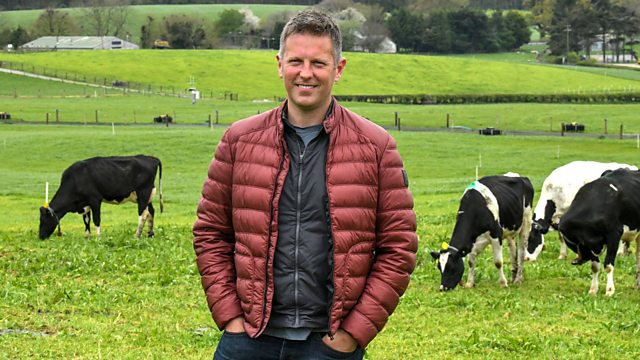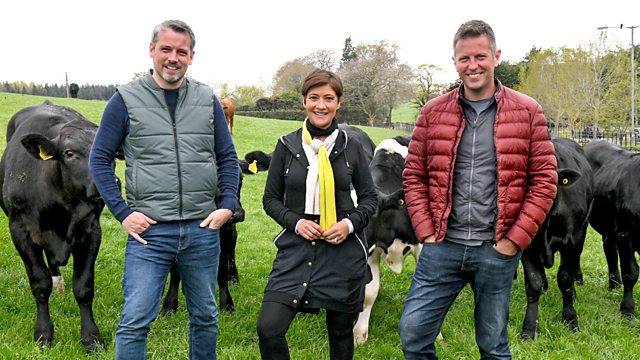Countryfile – Wakehurst: Nestled in the picturesque landscape of West Sussex, Wakehurst, Kew’s magnificent botanic gardens, serves as the captivating backdrop for this year’s highly anticipated Countryfile photographic competition. The sprawling estate, with its diverse collection of plants from around the globe, provides the perfect setting for selecting the stunning images that will adorn the 2025 Countryfile calendar, all in support of the worthy cause of BBC Children in Need.
At the heart of this exciting event are the familiar faces of Countryfile, John Craven and Charlotte Smith, who bring their wealth of experience and passion for the British countryside to the judging panel. Joining them is a special guest, the multi-talented Vick Hope, whose credentials as a presenter, journalist, and author are further enhanced by her deep-rooted love for nature. Together, this dynamic trio will embark on the challenging task of selecting the final 12 photographs that will not only showcase the beauty of the British landscape but also inspire viewers throughout the coming year.
The competition has always been a highlight of the Countryfile calendar, drawing entries from amateur and professional photographers alike. Each year, thousands of hopeful contestants submit their best shots, capturing the essence of rural Britain in all its glory. From misty moorlands and rugged coastlines to quaint villages and bustling market towns, the photographs offer a visual feast that celebrates the diverse tapestry of the UK’s natural and cultural heritage.
As the judges pore over the entries, viewers will be treated to a behind-the-scenes look at the decision-making process. John, Charlotte, and Vick will share their insights on what makes a truly exceptional photograph, discussing composition, lighting, subject matter, and that elusive quality that elevates an image from good to unforgettable. Their deliberations promise to be both enlightening and entertaining, offering aspiring photographers valuable tips and inspiration for their own work.
While the photographic competition takes center stage, the episode doesn’t stop there. Charlotte Smith takes viewers on a fascinating journey through another of Wakehurst’s crown jewels: the Millennium Seed Bank. This state-of-the-art facility plays a crucial role in global conservation efforts, housing billions of seeds from a vast array of plant species. Charlotte delves into the bank’s current focus on supporting native meadows, exploring the vital work being done to preserve and restore these increasingly rare habitats.
The importance of meadows cannot be overstated. These biodiverse ecosystems are not only beautiful but also essential for countless species of flora and fauna. However, with over 97% of wildflower meadows lost since the 1930s, the work of the Millennium Seed Bank in safeguarding their genetic diversity is more critical than ever. Charlotte speaks with passionate botanists and ecologists about their efforts to collect, store, and study seeds from meadow plants, and learns about initiatives to reintroduce these species to the wild.
In a segment that highlights the cutting-edge research taking place at Wakehurst, Charlotte meets with the high-tech team that’s revolutionizing our understanding of trees and plants. This group of innovative scientists and engineers is harnessing the power of advanced technology to unlock the secrets of the natural world. Viewers will be amazed as they witness robots carefully tending to seedlings, drones mapping forest canopies with unprecedented precision, and LiDAR (Light Detection and Ranging) technology creating detailed 3D models of entire ecosystems.
Countryfile – Wakehurst
These technological marvels are not just impressive gadgets; they’re powerful tools in the fight against climate change and biodiversity loss. The data collected by these devices is helping researchers better understand how plants grow, interact with their environment, and respond to changing conditions. This knowledge is crucial for developing strategies to protect and nurture our planet’s vital green spaces in the face of mounting environmental challenges.
The episode also shines a light on the often-overlooked heroes of conservation: the dedicated wardens who manage nature reserves. Viewers will follow Wakehurst’s nature reserve warden as he tackles a challenging project born out of adversity. In an area recently devastated by ash dieback, a fungal disease that has ravaged ash populations across Europe, the warden is working to transform tragedy into opportunity.
Rather than simply clearing the affected area, the warden explains his innovative approach to repurposing the felled trees and creating new habitats. Dead wood, often removed from managed woodlands, is actually a crucial component of healthy forest ecosystems. By strategically leaving some fallen trees in place and using others to create log piles and standing deadwood, the warden is providing vital resources for a wide range of organisms, from fungi and insects to birds and small mammals. This segment offers a powerful reminder of nature’s resilience and the positive impact that thoughtful management can have on biodiversity.
The final segment of the episode takes viewers into the fascinating world of bees and the intricate relationships between these vital pollinators and the plants they visit. A leading bee expert at Wakehurst is using cutting-edge DNA analysis techniques to study pollen, unlocking a treasure trove of information about bee behavior and plant-pollinator interactions.
By examining the DNA present in pollen grains collected from bees, researchers can identify exactly which plants the bees have visited. This information is crucial for understanding pollination networks, informing conservation strategies, and even solving mysteries in fields as diverse as forensics and archaeology. The bee expert shares some of the surprising discoveries made through this research, painting a vivid picture of the complex and beautiful dance between bees and flowers that sustains so much of life on Earth.
As the episode draws to a close, viewers will have gained a deeper appreciation for the multifaceted work being done at Wakehurst. From celebrating the beauty of the British countryside through photography to safeguarding the future of our planet’s plant life, the program showcases the passion, dedication, and innovation that drive conservation efforts in the 21st century. It’s a reminder that in the face of environmental challenges, there is hope to be found in the tireless work of scientists, conservationists, and nature enthusiasts across the country and around the world.
Conclusion Countryfile – Wakehurst
As the Countryfile episode from Wakehurst draws to a close, viewers are left with a profound appreciation for the interconnected world of nature conservation, scientific innovation, and artistic celebration of the British landscape. The journey through Kew’s botanic gardens in West Sussex has been both enlightening and inspiring, showcasing the multifaceted efforts to preserve and understand our natural heritage.
The photographic competition, judged by John Craven, Charlotte Smith, and Vick Hope, serves as a poignant reminder of the beauty that surrounds us, capturing the essence of rural Britain through the lenses of talented photographers. These images, soon to grace the 2025 Countryfile calendar, will not only raise funds for BBC Children in Need but also inspire a deeper connection with nature among viewers.
Wakehurst’s Millennium Seed Bank emerges as a beacon of hope in the face of biodiversity loss, with its crucial work in preserving native meadow species. The high-tech research team’s use of robotics, drones, and LiDAR technology demonstrates how cutting-edge science can be harnessed to protect and understand our environment better.
The nature reserve warden’s innovative approach to managing ash dieback-affected areas highlights the resilience of ecosystems and the importance of adaptive conservation strategies. Meanwhile, the bee expert’s DNA analysis of pollen reveals the intricate relationships between pollinators and plants, underscoring the complexity of natural systems.
This Countryfile episode from Wakehurst serves as a powerful testament to the dedication of scientists, conservationists, and nature enthusiasts working tirelessly to safeguard our planet’s future. It reminds us that through a combination of artistic appreciation, scientific inquiry, and hands-on conservation efforts, we can foster a deeper understanding and respect for the natural world. As viewers reflect on the diverse initiatives showcased at Wakehurst, they are left with a sense of hope and a renewed commitment to protecting the rich tapestry of life that surrounds us.
F.A.Q. Countryfile – Wakehurst
Q.: What is the Countryfile photographic competition held at Wakehurst?
A.: The Countryfile photographic competition at Wakehurst is an annual event that invites photographers, both amateur and professional, to submit their best images capturing the essence of rural Britain. The competition’s winning photographs are featured in the Countryfile calendar, with proceeds benefiting BBC Children in Need.
Q.: Who are the judges for the 2025 Countryfile photographic competition?
A.: The judging panel for the 2025 Countryfile photographic competition includes John Craven, Charlotte Smith, and Vick Hope. These judges bring their extensive experience and passion for nature and photography to the selection process, ensuring that the final images represent the beauty of the British landscape.
Q.: What role does Wakehurst play in the competition and conservation efforts?
A.: Wakehurst, a stunning botanic garden in West Sussex managed by Kew, serves as the backdrop for the competition and is also home to the Millennium Seed Bank. This facility plays a critical role in global conservation, particularly in preserving the genetic diversity of native meadow species, contributing to the protection of endangered habitats.
Q.: How does the Millennium Seed Bank contribute to conservation?
A.: The Millennium Seed Bank at Wakehurst is a world-leading conservation initiative that stores seeds from a vast array of plant species, focusing particularly on those at risk of extinction. The bank supports the restoration of wildflower meadows and other vital habitats by preserving and researching seeds that are essential for biodiversity.
Q.: What technological advancements are showcased at Wakehurst in relation to conservation?
A.: Wakehurst is at the forefront of using advanced technology in conservation efforts. The episode highlights the use of robotics, drones, and LiDAR technology, which help researchers monitor plant growth, map ecosystems, and develop strategies to combat climate change and biodiversity loss. These innovations are crucial in enhancing our understanding and preservation of the natural world.
